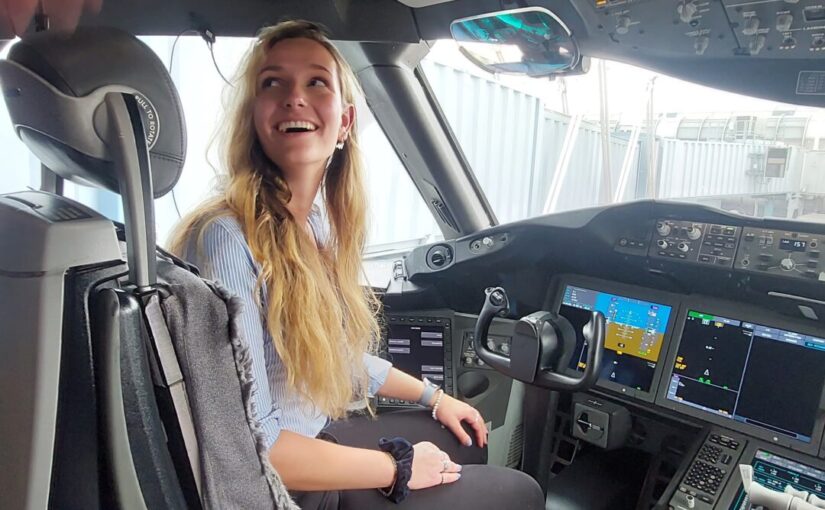Field of study in Wageningen: Master Earth and Environment
Study period exchange: 15/08/2023 – 16/12/2023
Country (exchange): USA
City (exchange): West Lafayette (IN)
University (exchange): Purdue University
Faculty (exchange): College of Agriculture/College of Science/Polytechnic Institute
2. Motivation for exchange
Why did you choose to go on study exchange?
I love to travel and I am quite certain I would like to work and live abroad at some point in my life. Going on exchange was like a ‘trial’ to me to see if I would actually enjoy living abroad. Furthermore, I wanted to broaden my academic knowledge in some areas that Wageningen or any other Dutch university did not offer, so I decided to look abroad for that.
What is the reason you chose for this country/university?
I wanted to focus my studies on aviation and Purdue has a very good school in aviation studies. I also wanted a school in an English speaking country so that the language would not be a barrier to follow classes or make friends.
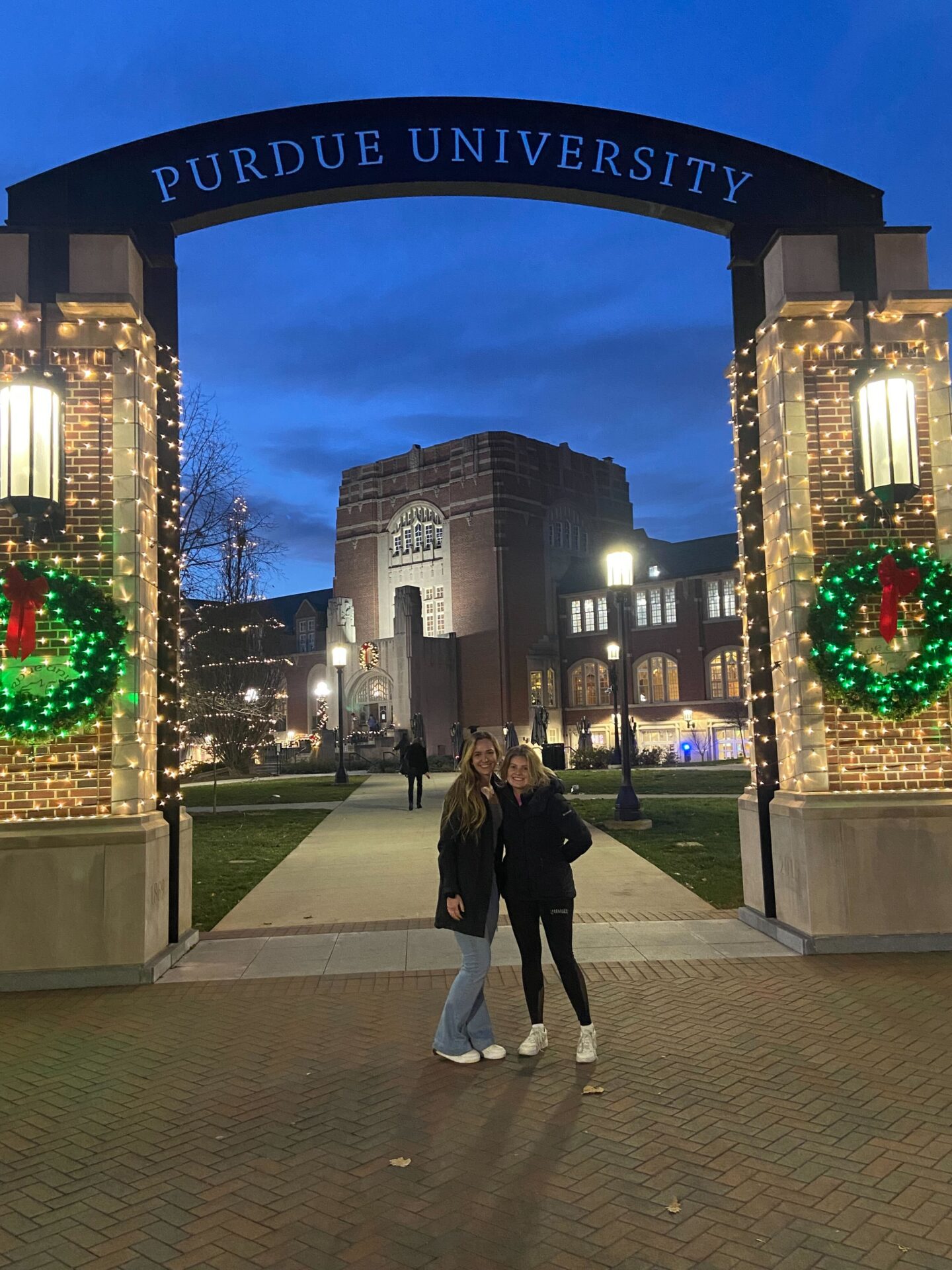
3. Accessibility to reach destination
Do you have any tips to reach your exchange destination?
Fly to Chicago’s O’hare Airport and take either Lafayette Limo or Reindeer Shuttle to Purdue’s campus.
4. University and studying
Could you provide some general information about the followed courses?  How is the study formalized
How is the study formalized
The teaching methods are the major difference when comparing the WUR to Purdue. In the US, it is very normal to get large amounts of homework in university. My schedule was therefore also very different than at the WUR; I was taking 6 courses at a time, for which I had either 1 or 2 lectures per week. Every week was the same schedule. Therefore there was a lot of ‘free time’, but the amount of work that had to be done outside of class was much higher. Your grade was also partially based on your homework and sometimes even on attendance. There are also more options to gain extra credit in case you failed an assignment or exam, so failing a course rarely happens. Despite that, the level was quite comparable to that at the WUR, especially when you take courses at the same ‘code’ level (400/500 is upper bachelor’s level). It is much less common to not be in class than it is at the WUR, as sometimes attendance is taken or there can be pop quizzes. People would often form study groups to keep up with material and homework in between classes which was very nice.
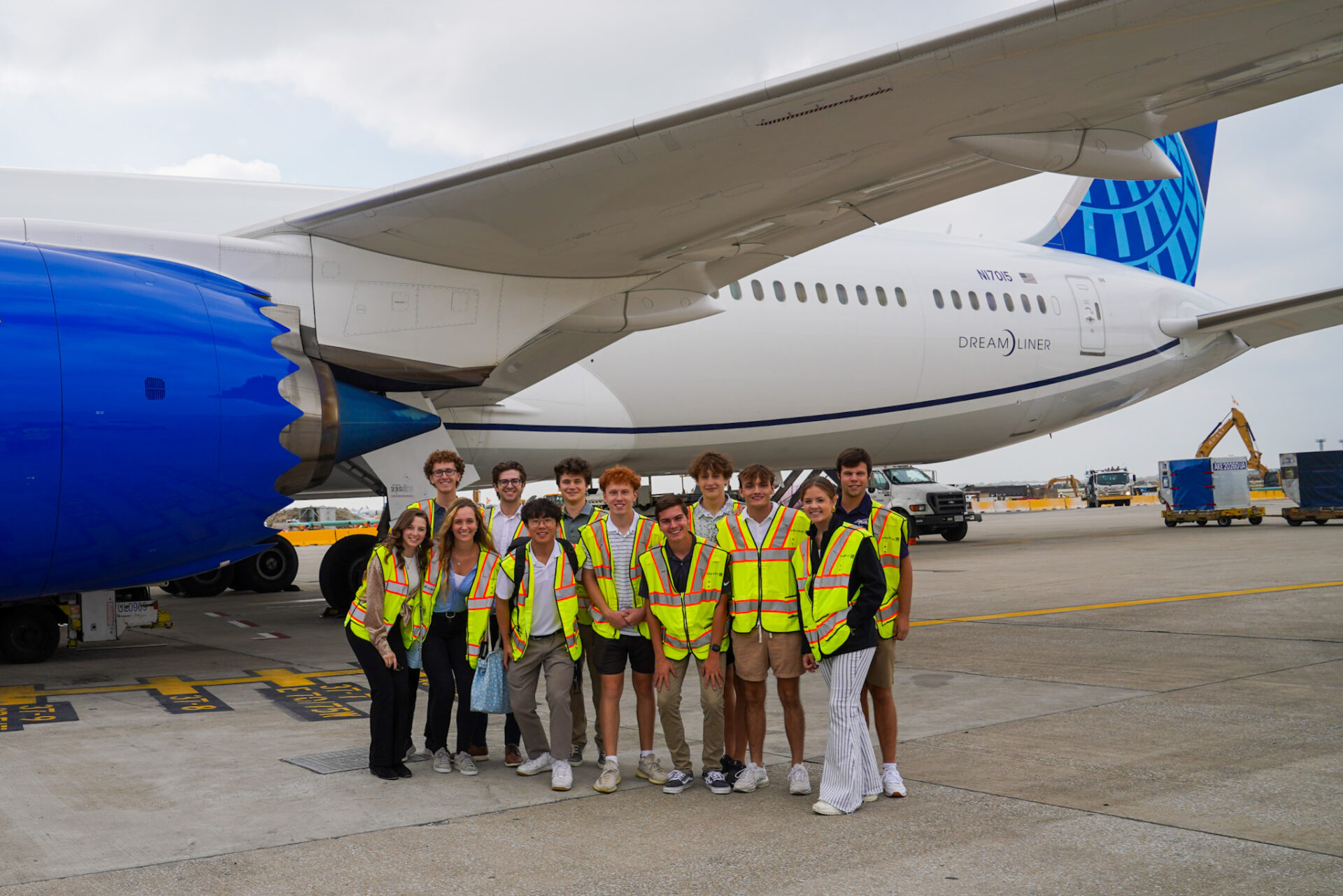
What is the culture of the university?
Students and lecturers were very approachable. Many are very interested to hear about your experience as an international student too which helps. Like I said people would often form study groups so it is not difficult to engage with local students. The university also has many ‘clubs’, which can range from sports clubs to professional ones. I definitely recommend joining a couple to meet some new people. Joining a club gave me some very cool opportunities, I met some of my best friends through there and it also helped be build a professional network!
What does the university offer the student additionally?
There is a very large sports centre which is completely free (or included in tuition) for students. Included in the centre are multiple large fitness halls, basketball courts, volleyball courts, an outside and inside running track, a bouldering and climbing wall, a large swimming pool, sauna’s, and there is also an option to follow lessons free of charge. Physical therapy is also located inside the building. Moreover there is a health centre located on campus (which is all walking distance) and there are numerous commercial catering facilities on campus. For students living in the residence halls (which is most common for exchange students), there are laundry rooms in the buildings (not free) and you will be forced to take out a meal plan, which you can use at one of the 5 dining courts on campus.
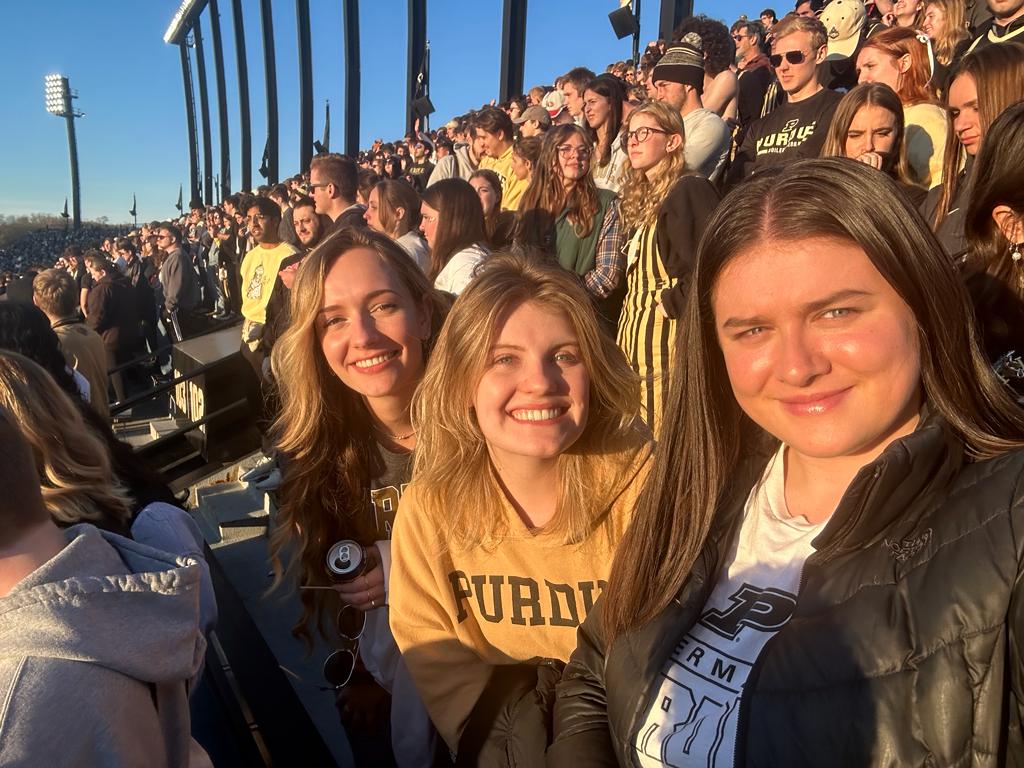
5. Housing-travelling-living
What are the possibilities for housing?
The university has their own housing called dorms or residence halls. These rooms are often shared with a roommate, some will be single rooms but those are often reserved for returning students. The rooms are equipped with beds, desks, dressers and a closet. The bathroom is usually shared with the rest of the floor which are gender-separated. There’s different dorms for everyone’s liking, so some will be more apartment style, including a kitchen and private bathroom, while others are like I described above. Some will have AC, others will not. All these factors contribute to the price of the room. Generally rental rates are higher than in Wageningen. I paid about $2000 for my room for the fall semester (august-december). This is excluding the meal plan that you are forced to take out if you are in the residence buildings, since there are no / very small kitchens. There are multiple options for meal plans which are based on the amount of meals per week. I had the smallest one (8 meals per week) and this cost me $1499 for the entire semester. This comes down to about $12 per meal. So quite a bit higher than in the Netherlands. There are also possibilities to live outside the dorm rooms. There are fraternities/sororities (studentenverenigingen) that provide housing and there’s also co-operative housing (more similar to Dutch housing, where you share a house with housemates and all share cleaning/cooking tasks). There’s also private companies providing housing (usual rates about $600-$1000 a month) both on and outside campus. These rooms are generally more expensive but do come with the luxury of bigger/single rooms including bathrooms or kitchens. There’s basically anything to accommodate your wishes. The dorms are just the easiest option as you are guaranteed a room and the meal plan provides some luxury since you do not have to cook.
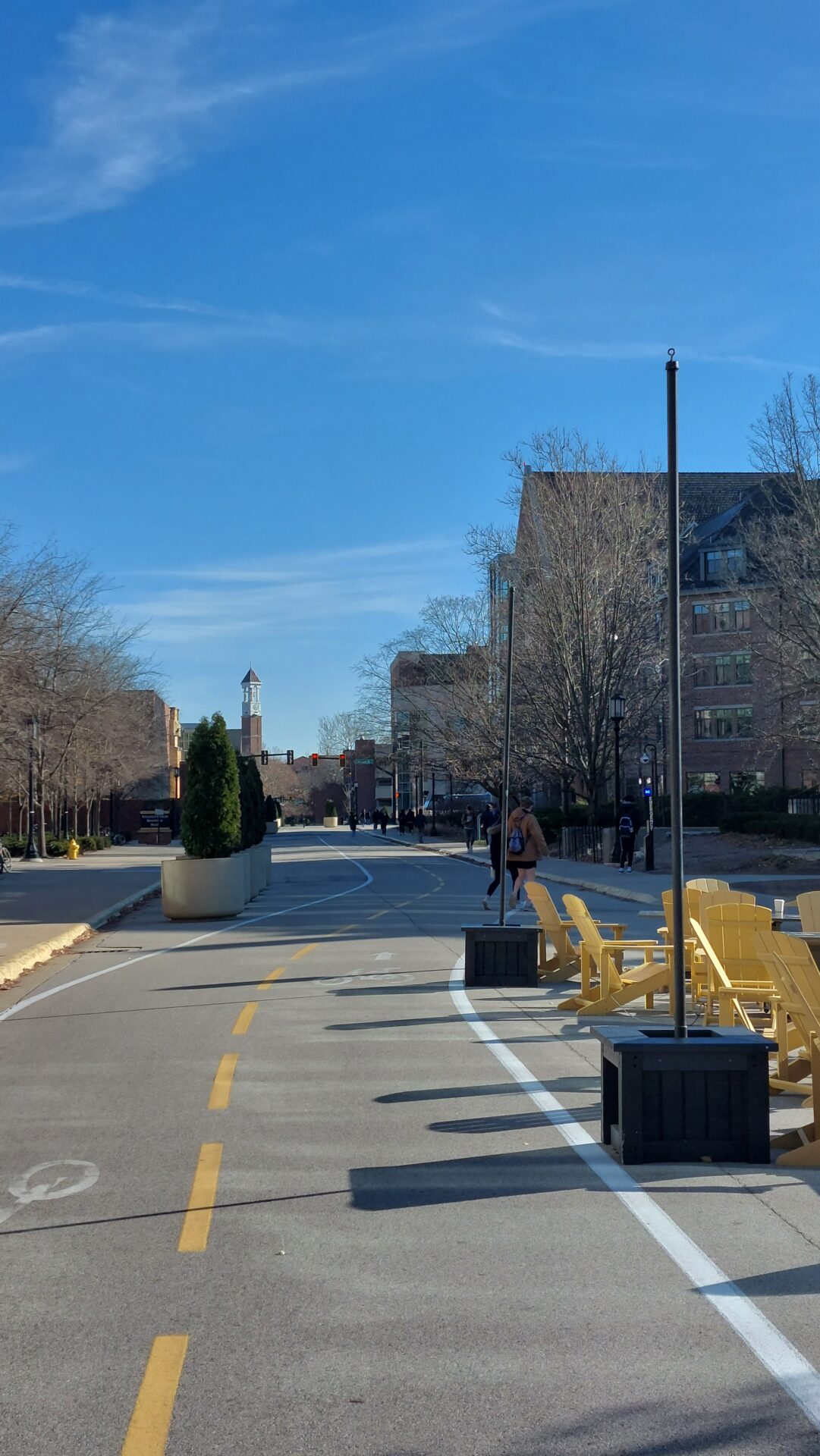
What is the culture of the country like?
Purdue is located in the state of Indiana which is (I would say) a very typical American state. People there are extremely nice, but it can sometimes be politeness and a bit ‘fake’. They are not as direct as us Dutchies so this can sometimes seem rude to them. However, people are usually always there to help you and it is very easy to make friends! Food is less fresh and generally processed which can provide a bit of a challenge when you are trying to eat healthy. It is also very normal to wear pyjama pants to class… this is still weird to me.
Could you give some information about public transport infrastructure?
The campus is large, but generally everything is at walking distance! It depends a bit on where you are, but if you have a room on campus, you should be able to get to class/dining courts/gym just by walking. It would usually take me about 10 minutes to walk to class from my dorm room and most dining courts were about 5 minutes away, as well as the gym. To get somewhere outside of campus, you will need to either use a car (if you make some American friends they will be able to drive you ) or take a bus. The bus system towards Lafayette is free for Purdue students and runs reasonably well. Sometimes buses will not show up so take some extra time. Ubers are relatively cheap too, especially when sharing. To get to Chicago or Indianapolis you can for example take a train or Flixbus which would be somewhere between 20 and 50 dollars one way. Generally the public transport system is OK, but not near as dense or good as in the Netherlands. To get somewhere outside of Lafayette – except for big cities like Chicago or Indianapolis – you will need (someone with) a car. To travel anywhere further you will probably need to fly (there’s some trains that run across the country, AmTrak, which is a fun experience but takes long). You can take flights out of Chicago or Indianapolis. International flights will generally only fly from Chicago. There’s two shuttle services running from and to Purdue’s campus to both Indianapolis and Chicago O’hare airports (NOT Midway!): Reindeer Shuttle and Lafayette Limo. I can recommend them both. There’s also general bus services, like Flixbus or Greyhound, running to Indianapolis and Chicago. However these services do not run from the airports and drop you or in Lafayette, which is outside Purdue’s campus (which is in WEST Lafayette). So you will still need to Uber/take a train/bus to get to and from these bus services. However, they will be a little cheaper than the shuttles.
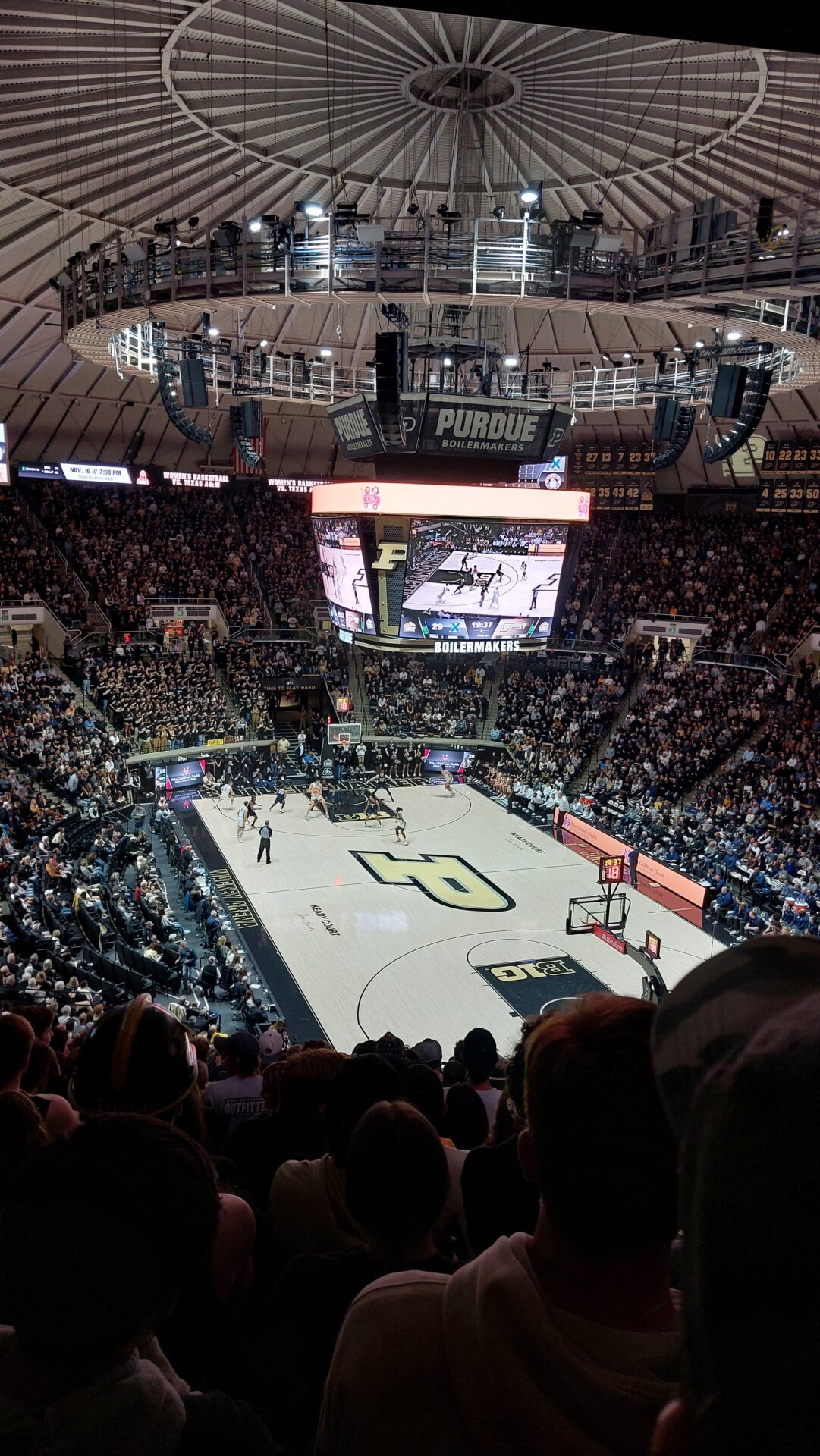
6. Expenses
Can you give an indication of your expenses for/during your exchange?
Ticket there: 920 EUR (round trip, direct flight)
Visa if applicable: $450
Vaccinations if applicable: none Insurances (extra, if applicable): continuous travel insurance: 6.50 EUR/month, health insurance through university: $650 for the entire semester
Housing costs per month & type of housing/accommodation: $3500 for small double room + 8 meals a week for the entire semester. $35 a night if you come early/stay late.
Groceries: about $20-40 a week
Public transport: 0 for buses on campus/to Lafayette Restaurant/going out for dinner: depends on restaurant, but usually a bit cheaper than in Netherlands. Main course would usually be around $10-$15 and drinks around $3 with free refills.
Daytrips/sight-seeing: there’s not many ‘day trips’ to do around Lafayette, but you can go to some cities for a weekend (Chicago, Indianapolis, Nashville). Big cities are clearly more expensive than rural Indiana. Transport there about $50 (cheapest option) and I would say accommodation $100-$200 a night. But this is a very rough estimate.
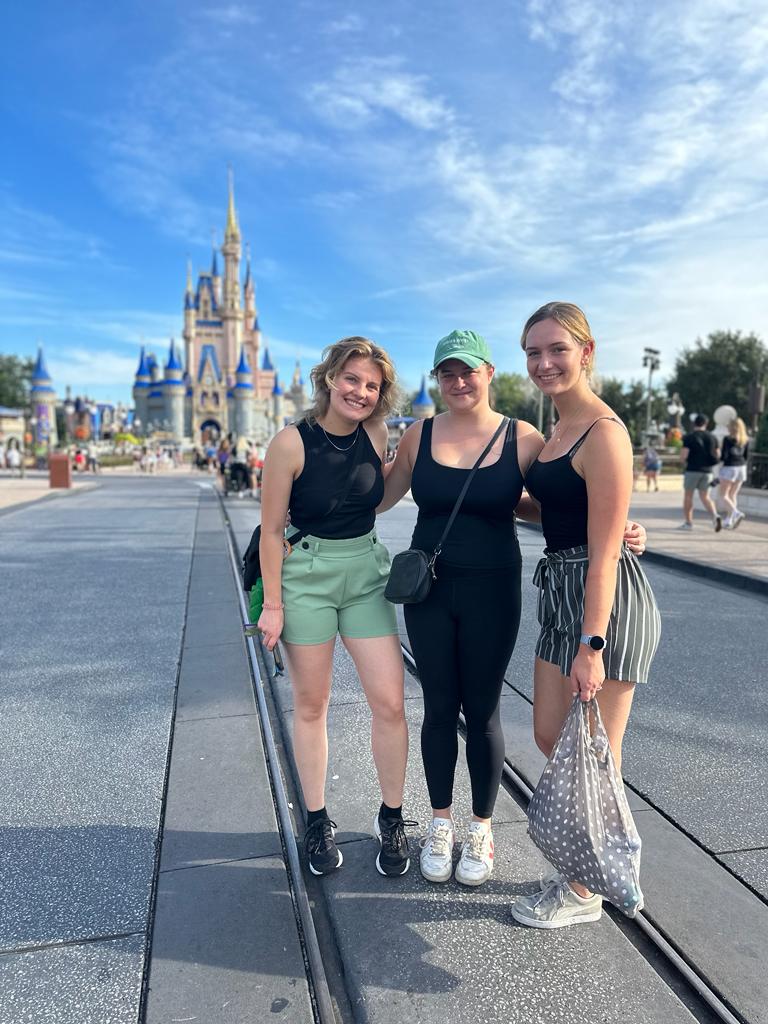
7. Free time
What are must-sees in the area?
Like I said there is not very much to see in the neighbouring area to campus. There’s a lot of farming so it’s mainly corn/soy bean fields you will see outside of campus. The campus itself is very large and full of fun things to do. I 100% recommend going to a football game, a basketball game, and if you are over 21 go to the Neon Cactus for a fun night out. The Neon Cactus is a large bar on the edge of West Lafayette including a piano bar with live music on Thursdays through Saturdays. Purdue’s campus is a dry campus, so there are not many bars or clubs, but there’s definitely ways to make it fun.
What does not appear in the travel guide, but is worth a visit?
Around Lafayette you will find some historical battle grounds from when the settlers first came to America and fought the natives. If you are interested in a little bit of history, this is definitely worth a visit. You will need a car for this, so ask some of your American friends to drive you and show you around a bit. The nature here is also a lot prettier, with old riverbeds meandering through the forests and hills it is a lot different than the endless plains of corn.
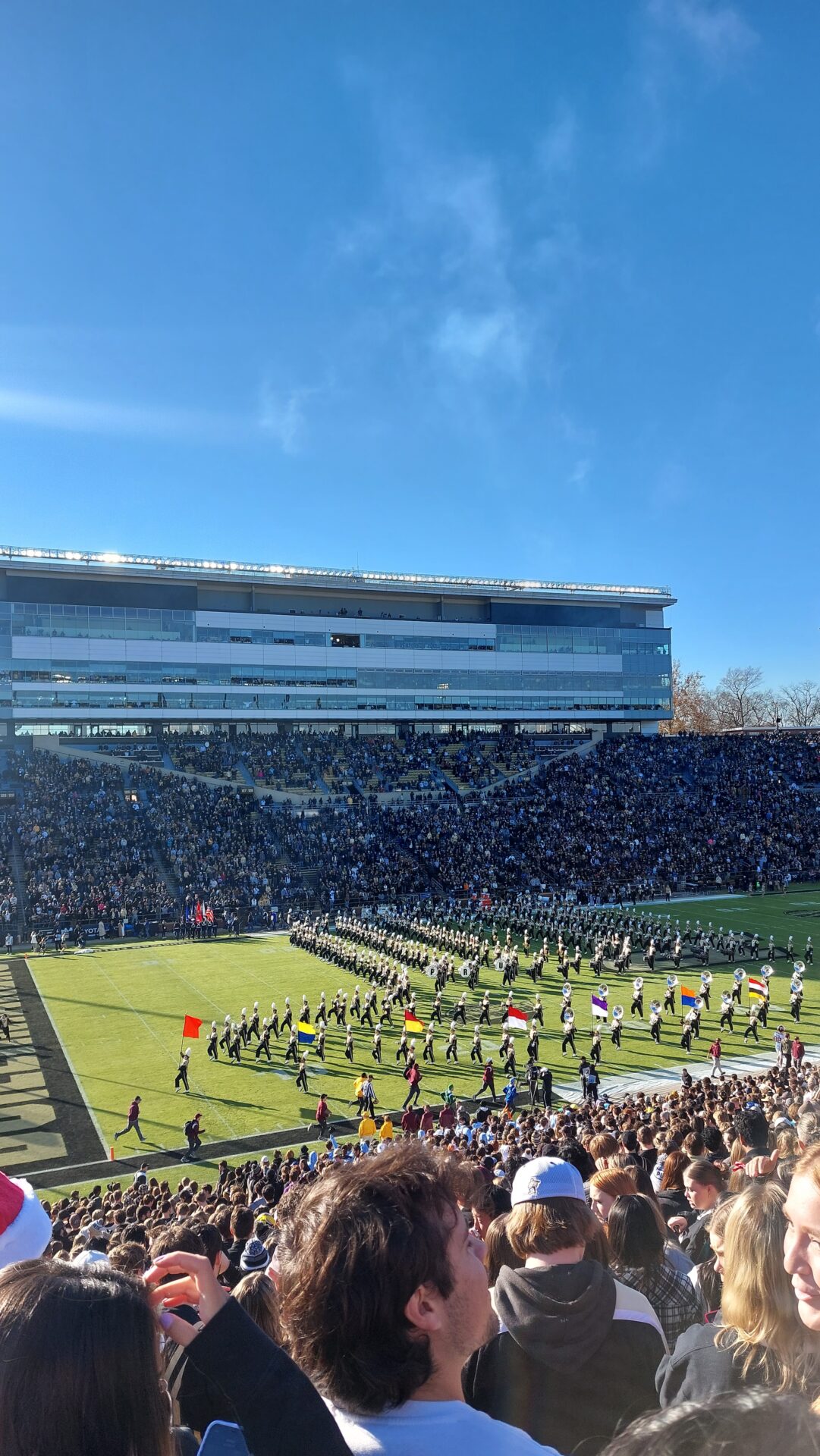
Do you have general tips and tricks about leisure time?
The PMU is a great place to pick up a quick to-go meal for a mealswipe. The Hillenbrand dining court does great brunches every Sunday. If you are into weightlifting, the co-rec will be heaven to you. It is a massive gym. Do not miss out on going to some sports games as the whole campus turns into chaos on those days. It is absolutely fun to experience full American college culture. If you are into aviation, the university has its own airport located just outside of campus. Take a discovery flight and see campus from above!
7. Challenges & best moment abroad
What was a challenge you have experienced?
I was never homesick or anything like that, I love travelling so I did not really have many challenges. It was a little bit difficult to make friends in courses where people already have their own friend groups, but the course I felt most alone in my first lecture was actually the one I made the most friends in in the end. It definitely helps to join a club. Living with a roommate can also be a little bit of a challenge, especially if your sleeping schedules are very different. Be sure to talk about it with your roommate or resident assistant if something is bothering you to avoid conflict. Living with a roommate was not as bad as I thought it would be as you will still have your own space inside the shared room. Even though I did not, I know many exchange students that became very close with their roommate. If you struggle with staying motivated to study, it can be sometimes be a little bit difficult to keep up because of the amount of (what seems to be) free time. For me this system works great, but it can be challenging to motivate yourself to do all of the homework. If you are struggling with anything, homesickness, motivation or mental issues, the university has some great resources you can reach out to (CAPS).
What was your best memory abroad?
All of the things I did just because I said “I’m only here for 4 months so yes, let’s just do it”. I got to go look behind the scenes of two international airlines, I got to go flying twice, I showed horses as a real cowgirl because I joined the western team, and still managed to get the highest grades I’ve ever received in my academic career. Most importantly, I got to meet friends for life, from all over the world!
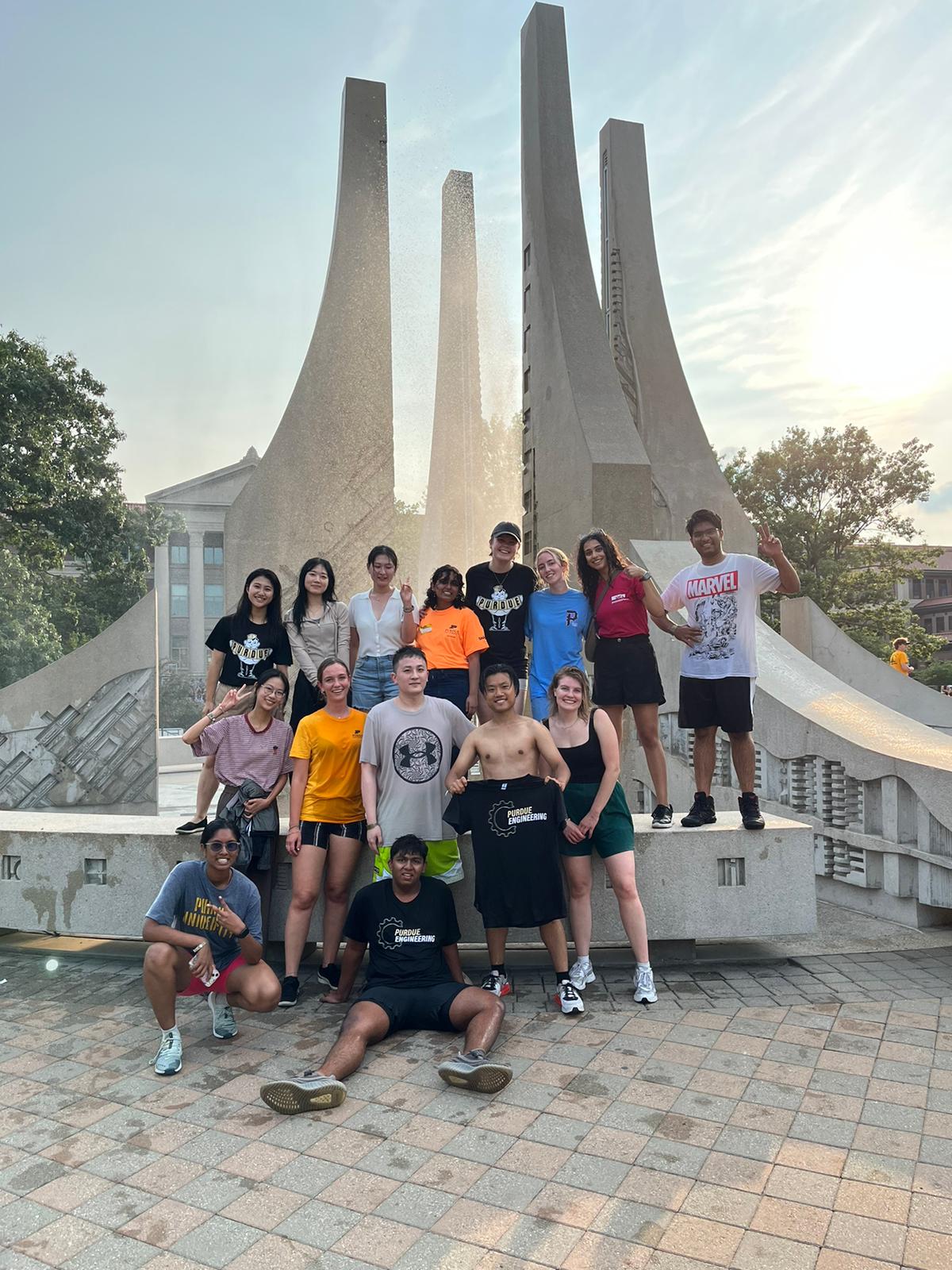
8. Contact Details
Would you like to ask Vera more questions about her exchange?
Send her a mail: vera.buis@wur.nl

